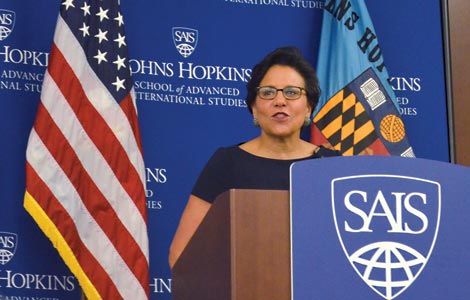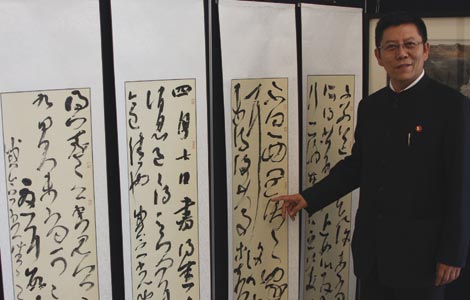Officials, businesses seek to aid tea trade
Updated: 2014-04-21 07:24
By Li Yu and Peng Chao in Chengdu (China Daily)
|
||||||||
The local government and tea companies are trying to boost the tea industry in Ya'an, one of China's largest tea production areas, a year after the region was hit by a magnitude-7.0 earthquake.
Although the tea fields were almost unscathed, the tea industry in Ya'an suffered a great loss as leaves were left unpicked in the fields at peak season.
"Many of the dealers left for safety reasons. The workers, most of whom live in the quake-stricken area, went home to take care of their families and rebuild their houses," said Yang Yongxiang, director of Mingshan district's tea industry development bureau.
Mingshan district is the main tea producing area in Ya'an. It has about 20,000 hectares of tea fields and 200,000 workers who pick the leaves. Tea has long been the main source of income for people there.
Official statistics show that 365 of the 1,000 tea makers in the district were affected by the quake, causing a direct economic loss of about 540 million yuan ($86.83 million).
The quake, together with a harsh frost earlier in the year, led to a 42 percent decrease in the district's tea production in March and a 55 percent decrease in April from the previous year.
Yang said the district is trying to boost its tea industry with reconstruction funds of more than 100 million yuan, mostly from the central government.
"As much as 31 million yuan was used to breed better varieties and 57.4 million yuan to reconstruct the industry," Yang said at the Mingshan Tea Breeding Ground, one of the nation's first six tea breeding centers.
The center has bred two national-level varieties since its establishment in 1987. One variety has been planted in tea fields nationwide covering a combined area of more than 133,000 hectares, about 7 percent of the country's total, Yang said.
The center's 3,000-square-meter headquarters was destroyed in the quake, but a new headquarters has now been built. Other facilities including roads, irrigation ditches and tea producing bases were also built to aid the industry.
Dozens of workers are now picking in the fields, chatting and laughing as they work.
"You may write in your paper that we workers need to be better paid," said Ren Xiaoyan, who has been picking tea for more than 10 years. She earns about 100 yuan a day during the season, which lasts from March to May.
At the foot of the Mengding mountain in Mingshan district, a newly built tea market covering 80,000 sq m will go into full use in the second half of the year. Some local tea makers have moved into the traditional-style stores.
Ye Longze, general manager of Mengdingshan Tea Market, said the market will represent 5,000 tea makers from the Mengding tea producing area. Trade volume is expected to reach 25 million kilos, about half that of the entire Mengding tea-producing area.
"The market will benefit the tea farmers by attracting more dealers and keeping a proper and steady price," Ye said.
He said the market will also help promote the Mengding tea brand. Mengding tea, with a history of 2,000 years, has been offered to emperors from the Tang Dynasty (AD 618-907) until 1911, when China's monarchy ended.
(China Daily 04/21/2014 page4)

 In photos: cars dazzle at Beijing Auto Show
In photos: cars dazzle at Beijing Auto Show
 Multinational drill to be held in East China port city
Multinational drill to be held in East China port city
 William, Kate visit Australian air force base
William, Kate visit Australian air force base
 Top 10 Chinese Internet firms eyeing IPOs in US
Top 10 Chinese Internet firms eyeing IPOs in US
 Google glass making profits in China
Google glass making profits in China
 BlackRock licensed to invest further in China using yuan
BlackRock licensed to invest further in China using yuan
 US Commerce chief vows trade growth
US Commerce chief vows trade growth
 UN hosts Chinese Language Day
UN hosts Chinese Language Day
Most Viewed
Editor's Picks

|

|

|

|

|

|
Today's Top News
Chinese naval chief won't meet Japanese officials
Charges near over China kickbacks in car exports
S. Korean ferry death toll at 64
Malaysia jet in emergency landing
New human H7N9 case reported
China on frontlines of cyber threat
China raises alert against cancer
Sunken ferry relatives give DNA swabs to help identify victims
US Weekly

|

|







